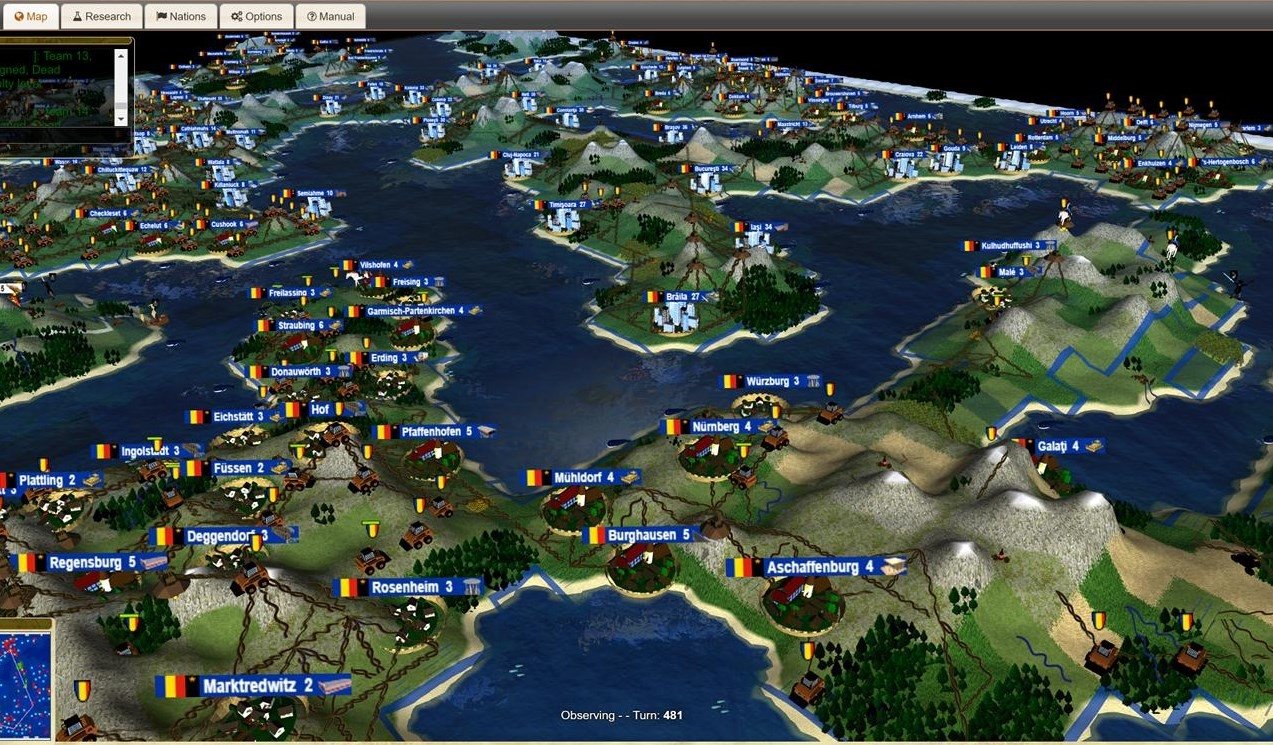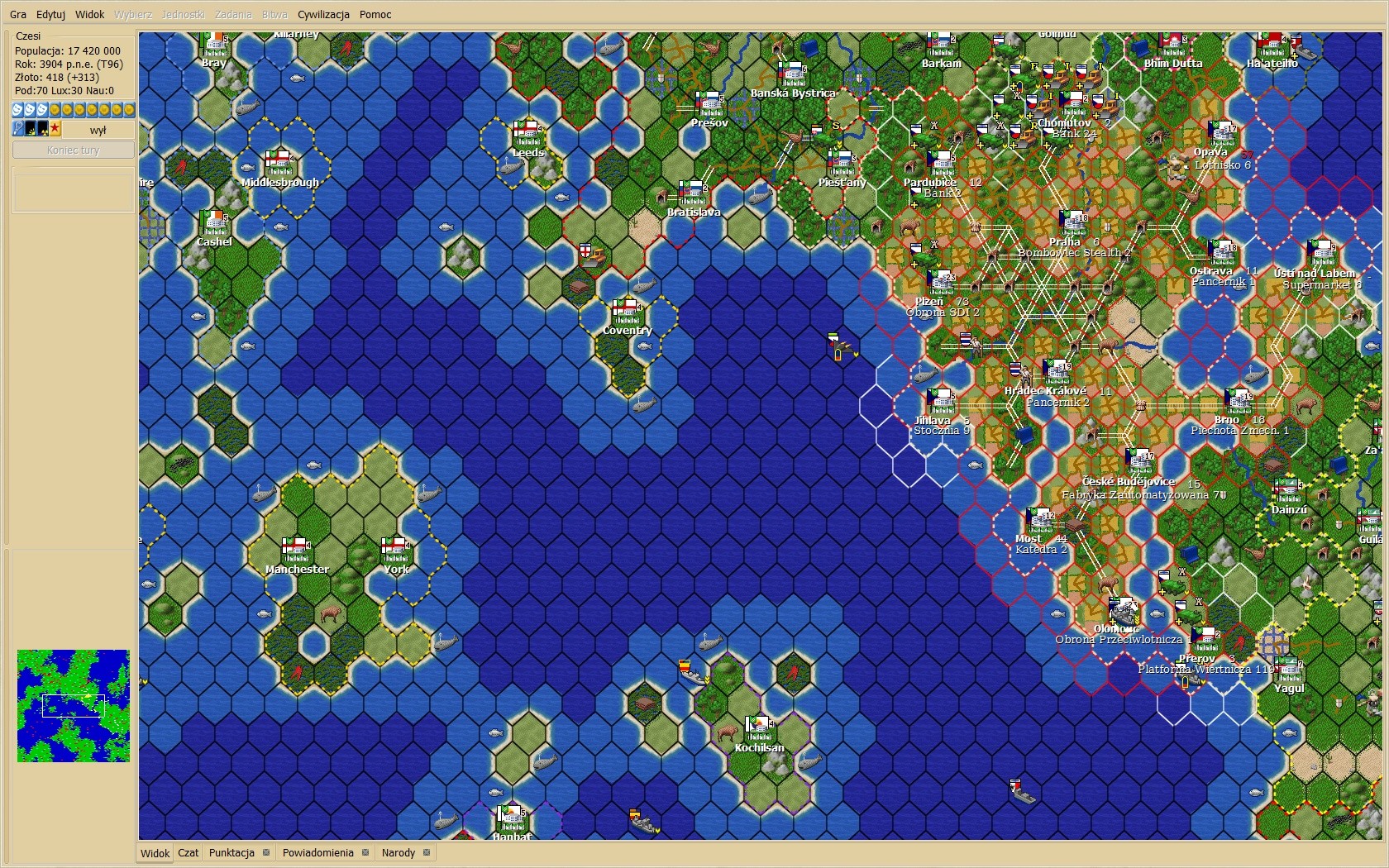

In 2006, TCP and UDP port number 5556 was assigned to Freeciv by IANA. New team playing features and advanced diplomacy made cooperative gaming more attractive.Īdjustments to various costs and benefits put an end to the dominance of the city smallpox strategy that left many of the game's features unused developing one's empire now necessitated a careful plan for city development, including the used of trade routes and phases of rapture, in which city populations grow quickly, under relatively peaceful conditions.Īs a result, multiplayer games were almost always played in teams and typically took longer to finish when compared to 1.x games.

Version 2.0, released in 2005, introduced several important changes. In practice, from around 2002, experienced players would form teams at the start of the game a fork of Freeciv included specific features for team play. sprawling the map with many small cities as fast as possible whoever could develop fastest would win the game, and growing and developing individual cities was not worthwhile. Over time, the winning strategy proved to be city smallpox, i.e. Subsequent 1.x releases improved the GUI, improved the gameplay, optimized playability over poor connections, and added many small features. A public server was installed on which games could be played around the clock it retained the games and published a post-game analysis webpage with per-player statistics and an animated map replay. Computer players are implemented directly in the server they do not play concurrently with human players, but separately, in between turns. In 1998, computer players were added they could soon beat newcomers to the game with ease, using only minor forms of cheating. This kept the game playable with network latency up to a few hundreds of milliseconds. Freeciv achieved this by using an asynchronous client-server protocol: during each turn, human users play concurrently, and their actions are sent to the server for processing without awaiting the results. The main development goal remained to make a Civilization-like game playable over the Internet, with participants on different continents, even when connected with 14400 bit/s modems. Linux distributions started to include Freeciv. Other players and developers took over they made the game available on many other operating systems, including Linux, Solaris, Ultrix, Amiga OS, and Microsoft Windows.
#Freeciv roads full#
Ī Freeciv game with full world map revealed ( Freeciv version 1.11.5, GTK+ client, tinydent tileset, islands map generator).įor the developers, Freeciv 1.0 was a successful proof of concept, but a rather boring game, so they went back to XPilot. The rules of the game were close to Civilization, while the client/server architecture was basically that of XPilot. The students-Peter Unold, Claus Leth Gregersen and Allan Ove Kjeldbjerg-started development in November 1995 the first playable version was released in January 1996, with bugfixing and small enhancements until April.
#Freeciv roads Pc#
Points are awarded for the size of a civilization, its wealth, and cultural and scientific advances.Īt the computer science department at Aarhus University, three students, avid players of XPilot and of Sid Meier’s Civilization, which was a stand-alone PC game for MS-DOS, decided to find out whether the two could be fused into an X-based multiplayer Civilization-like strategy game. If more than one civilization remains at the deadline, the player with the highest score wins. The game ends when one civilization has eradicated all others or accomplished the goal of space colonization, or at a given deadline. Players can wage war on one another or form diplomatic relationships. Over time, new technologies are discovered, which allow the construction of new city buildings and the deployment of new units. who must guide their peoples through the centuries. Players take the role of tribal leaders in 4000 B.C. Freeciv is playable online at, , and a number of temporary private servers that may or may not be listed on metaserver. However, with a lot of multiplayer games being played in longturn communities, rulesets and additional variants have evolved away from the original ruleset. The game's default settings are closest to Civilization II, in both gameplay and graphics, including the units and the isometric grid.
#Freeciv roads free#
Released under the GNU GPL-2.0-or-later, Freeciv is free and open source software. It is available for most desktop computer operating systems and available in an online browser version. Freeciv is a single- and multiplayer turn-based strategy game for workstations and personal computers inspired by the proprietary Sid Meier's Civilization series.


 0 kommentar(er)
0 kommentar(er)
